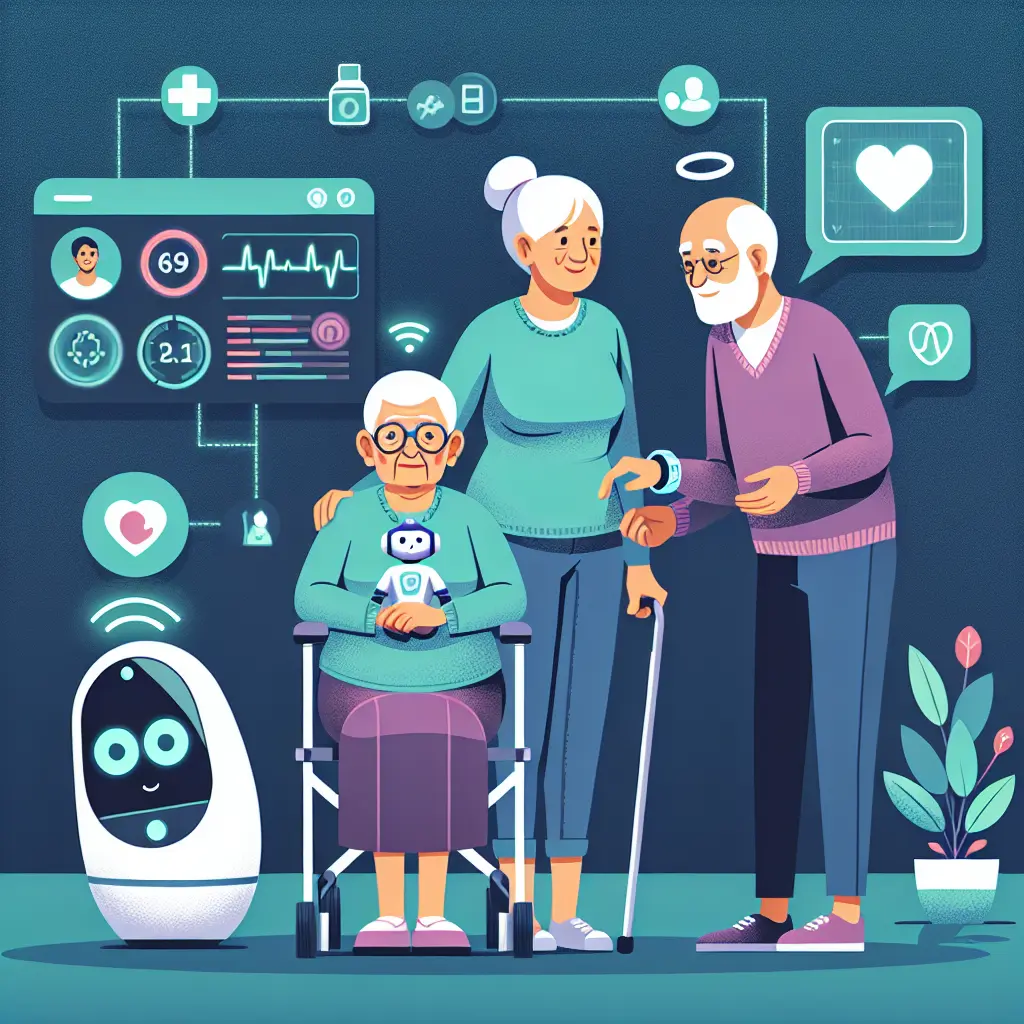
Revolutionizing Elder Care with AI Technologies
In an era where the global aging population is rapidly increasing, emerging AI technologies in elderly care are revolutionizing how we approach senior health and wellness. From AI healthcare solutions for the elderly to smart home technology for seniors, these innovations are transforming traditional elder care models into sophisticated systems tailored to enhance the quality of life for older adults. AI in senior care is not just a futuristic concept but a present-day reality, offering AI-driven elder care solutions that address both medical and daily living challenges.
The Impact of AI on Elderly Care
The integration of machine learning in geriatric care has paved the way for predictive analytics in senior care, enabling healthcare providers to foresee potential health issues and intervene proactively. AI-powered monitoring for seniors ensures continuous oversight, reducing risks and improving outcomes. Meanwhile, robotics in elderly care and virtual assistants are providing companionship and support, making AI-assisted living more personalized and effective than ever before.
Digital health tools for the elderly are becoming indispensable, offering a plethora of AI innovations in aging services that cater to various needs. From managing medications to facilitating communication with healthcare providers, these tools are vital elder care technology trends that help maintain independence and peace of mind for seniors and their families.
In recent years, emerging AI technologies in elderly care have made significant strides, transforming the landscape of geriatric care with innovative solutions. These technologies enhance the quality of life for older adults and provide peace of mind to families and caregivers.
AI Healthcare Solutions for Elderly
AI healthcare solutions for the elderly are at the forefront of this transformation. Platforms like JubileeTV simplify interfaces and offer remote support features, empowering older adults with more control and independence. These AI-driven elder care solutions reduce reliance on caregivers while promoting autonomy among seniors.
Smart Home Technology for Seniors
Smart home technology for seniors is another area where AI is making waves. Innovations like the PrivacyLens camera address privacy concerns by anonymizing data, ensuring seniors can enjoy smart home devices without sacrificing privacy.
Robotics in Elderly Care
Robotics in elderly care offers companionship and practical assistance. In countries like Japan, therapeutic robots such as Paro provide emotional support to seniors, while robotic vacuums equipped with PrivacyLens technology maintain clean home environments without infringing on privacy.
AI-Driven Elder Care Solutions
AI-driven elder care solutions extend beyond individual technologies to encompass comprehensive systems that address multiple aspects of senior living. Machine learning in geriatric care paves the way for predictive analytics, foreseeing potential health issues and enabling proactive interventions.
AI-Powered Monitoring for Seniors
AI-powered monitoring systems track vital signs and detect anomalies, alerting healthcare providers or family members when necessary. These advancements enhance safety and ensure timely medical attention, making them indispensable components of modern geriatric care.
Virtual Assistants for Elderly Care
Virtual assistants like Amazon's Alexa or Google Home are equipped with features tailored for seniors, including medication reminders and social interaction prompts. By integrating these virtual helpers into daily routines, seniors maintain independence while staying connected to essential services.
Case Study: Social Participation Policies in China
The transformation of social participation policies for older people in China provides a case study on the broader implications of AI in senior care. A recent analysis highlighted how these policies evolve to incorporate technological advancements, ensuring older adults remain active participants in society.
AI Innovations in Aging Services
AI innovations in aging services encompass a wide range of applications that facilitate communication, enhance mobility, and promote well-being. Smart transportation solutions using AI provide real-time updates for seniors relying on public transport, while AI-driven platforms enable remote communication with healthcare providers.
Elder Care Technology Trends
As elder care technology trends evolve, they present opportunities and challenges. The rapid advancement of AI technologies necessitates ongoing research and collaboration among stakeholders to ensure ethical implementation and equitable access.
Conclusion: Embracing the Future of Elderly Care with AI
The integration of AI technologies into elderly care is revolutionizing how we support our aging population. From AI healthcare solutions like JubileeTV that promote autonomy to smart home technologies such as PrivacyLens that safeguard privacy, these advancements reshape geriatric care. Robotics offer companionship and assistance, demonstrating AI's potential to cater to emotional and physical needs.
AI-powered monitoring systems ensure safety through continuous health surveillance, while virtual assistants help maintain independence through daily task management. Globally, countries like China adapt social policies to incorporate these technological advancements, highlighting AI's role in keeping older adults active in society.
As these trends continue to evolve, they require collaborative efforts to ensure ethical implementation and equitable access. By embracing AI technologies, we have the chance to redefine senior health and wellness, enhancing the quality of life for our elderly loved ones.
I encourage you to explore these transformative technologies further and consider how they can integrate into your care strategies or personal life. Share your experiences or insights in the comments—your thoughts could help shape a supportive future for our aging communities.
Let's continue this journey towards a compassionate and technologically advanced era of geriatric care.
Warm regards,
Martin Caldwell